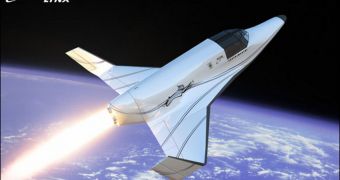Whereas the first Space Race was a direct competition between the world's two largest superpowers, the United States and the Soviet Union, the second one, currently just beginning, will be a confrontation of private entities.
Mirroring the international system, where the role of states is dwindling, and that of corporations is on the rise, the competition between private space businesses is bound to make headlines for years to come.
Now that technology to get to space has been acquired by the private sector, we are experiencing the early years of what will undoubtedly become a new space race that will span decades. The first one was won by the Soviet Union, when it managed to send Yuri Gagarin into space.
This happened more than 50 years ago, on April 12, 1961. Since then, the Soviets have collapsed, and the United States eventually emerged victorious from the race to harness space. But the roles are now distributed so clearly.
Corporations span numerous nations, and their goal is profit. This is why the space industry is so appealing to them. Thus far, only a few people have made their way into space, and only a handful as paying customers and tourists.
This market is therefore virtually untapped, and has great potential. While paying $36 million for a seat on the Soyuz capsule (a 7-day stay on the International Space Station included) was a lot for most people, $200,000 may be a more accessible price.
This is the amount of money that Virgin Galactic is asking for a seat on its SpaceShipTwo design, which was developed to carry six passengers and two crew members in a suborbital flight. Those onboard will experience weightlessness for a few minutes, before returning to Earth.
“It's an exciting time for the industry. I really believe that we're at the edge of an extraordinary period of innovation which will radically change our world,” says Virgin Galactic president George Whitesides, quoted by Space.
But the company is just one of many trying to make it in the business. In addition to transporting people to space, a huge battle is now being fought over developing the next generations of rockets and space capsules capable of traveling to the Moon, Mars or near-Earth objects.
Companies such as Space Exploration Technologies Corporation (SpaceX) and Orbital Sciences Corporation (OSC) are already working with NASA under lucrative contracts, but other players are moving in, and new companies are entering the market very often.

 14 DAY TRIAL //
14 DAY TRIAL //